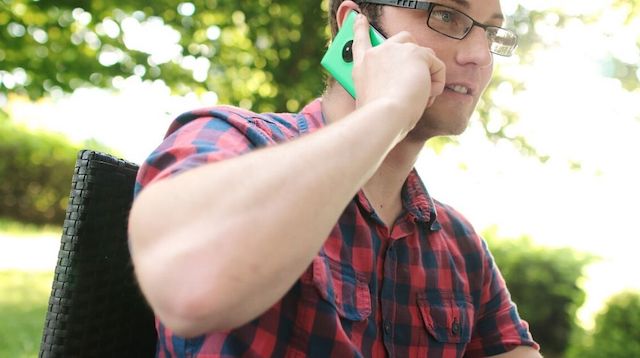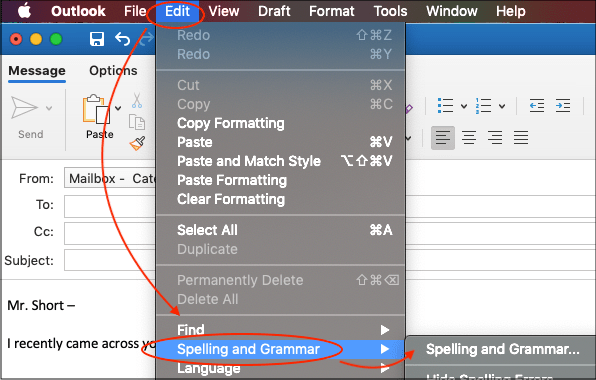The way that we communicate with those around us is so embedded that we rarely stop to consider how we come across in our interactions. We use our communication skills daily in almost every situation, including the workplace. But to be really successful at business communications, we must take the time to hone our tools and make adjustments when necessary.
In this article, we are going to look at how you can master the communication skills that will help you and your business become more successful.
The 4 business communication skills you need
Even if you’re a sole trader with a client list of two, how well you communicate will determine how far you go.
- Written communication.
- Verbal communication.
- Non-verbal communication.
- Visual communication.
Ready to be more successful? Let’s get started.
What is business communication?
Business communication is the process of sharing information within your business and with those outside your company.
When you think of it, all your business efforts rely on effective communication between you and those you work with.
While it can take time to develop good communication skills, the outcome is worth the effort. Whether you are trying to make yourself a better candidate for your dream job or want to improve the communication within your own business, you'll need to improve your communication skills to do so.

However, the ways we communicate with friends and family are not all appropriate for business. Let’s look at each of these communication types and the various ways that you can improve these skills.
1. Written communication
One of the most common types of communication in the workplace is called written communication. This term refers to sharing information through a written format such as texts, emails, letters, files or perhaps even sales brochures.
An email that would be fine to send to a friend would be wrong for business.
If you want to sharpen your communication skills, then you should work on your written communication skills. This is because written communication is used in every type of business, from startups to large companies.
Here are some ways you can improve your written communication skills.
Keep your writing simple
When you are writing for business, you should always try to keep your writing as simple as possible. While you may be required to add a lot of details, you should try to be concise with what you're saying and get to the point quickly.
Remove complex words
One of the ways that you improve your writing skills is by removing any complicated wording. Try to pick words that can be easily understood, instead of complex words that can cause confusion.
Be careful of your tone
When you are using written communication to interact with those around you, you should always remember that your tone can't always be understood. For example, you may intend to make a joke through text, but it can easily be taken seriously and cause you trouble.
Be polite and professional
Whether you're communicating with a supplier, a client or even a prospect, you should always try to remain courteous and professional. You are the face of your company when you are communicating with others, and you should always be respectful.
Proofread and review
Before you click SEND, you should always review your writing to ensure that there are no mistakes. Proofreading is a simple way to make sure that your written communication is concise, easy to read, and contains no spelling mistakes that may confuse others.

You can improve your written communication skills by taking a writing course through Udemy or Coursera or enrolling in one of many free writing courses for business.
Related: Copywriting tips for your small business
2. Verbal communication
Verbal communication is the process of sharing information through speaking or sign language. In business, verbal communication is one of the most-used forms of communication, and it's one of the most efficient ways to communicate with those around you.
You can use verbal communication on its own or as an aide to explain other communication methods such as written or visual communication.
Here are a few ways that you can improve your verbal communication skills:
Use a confident voice
When you are introducing yourself or presenting information to a group of people, you should always use a confident, strong voice that can be easily heard and understood.
Develop listening skills
When you're using verbal communication, you'll want to be sure to listen. Always listen to what others have to say and don't get distracted by what you'd like to say next.
Maintain eye contact
When you're using verbal communication, you should maintain eye contact with those you're speaking with. Eye contact shows your listeners that you are engaged in the conversation and care about what is being said.
This can be difficult if you’re shy. But it’s an important habit to learn.
If you would like to find more ways to improve your verbal communication skills, then you can find more here.
3. Non-verbal communication
Non-verbal communication refers to the use of body language, facial expressions, and other gestures that are used to convey your mood or opinion.
You may try to use non-verbal communication to get your point across, while other times, you may not realize that you're communicating with others through non-verbal methods.
Here are some of the ways that you can improve your non-verbal communication:
Develop self-awareness
While you may not notice it, you're communicating all the time through your body language.
Crossed arms, for example, show you disagree. Leaning in tells the person you’re interested.
Become aware of what your body may be communicating with others and try to control physically expressing any negative emotions that you might feel.
Use excellent non-verbal communication
Always look for different non-verbal communication methods that you find to be effective and then try them when you are dealing with those around you. Perhaps this is a smile, a head nod or even eye contact to show that you're listening.
Here are some tips that you can use to improve your non-verbal communication skills.
4. Visual communication
Visual communication refers to the sharing of information through visual formats such as:
- Graphs and charts
- Screen shots
- Photographs
- Drawings
- Other visual forms
Visual communication is often accompanied by verbal communication during presentations and other group meetings.
People have different ways of learning. Visual aids can often help them understand what you're talking about.

When someone can see a visual example of what is going on, then they will have a better understanding of your point. They will likely remember the presentation better.
Here are some steps that you can take to improve your visual communication:
Keep it simple
Visuals are supposed to aide verbal communication, but if they are confusing, then it can easily distract your audience while you try to give your presentation. Always keep your visuals simple. Add extra titles for unfamiliar data so that others can easily understand what your charts are meant to relay.
Get feedback
If you are going to use visuals as an aide in your business presentations, then you'll want to ask your coworkers or friends what they think about them. If they find your charts hard to understand, you may want to revise your visual aides so that others can easily understand what you're trying to show them.
Here are some tips that you can use to create better visual content for your business. You can also find online courses that will help you develop these skills.
The art of business communication
Communication is a vital part of our everyday lives and is used in every area of business.
If you want your venture to be successful, you will need to develop great communication skills.
Remember that it will take time to develop communication skills that work. But once you learn them, you'll become much more effective — whether you’re a freelancer, entrepreneur or employee.






